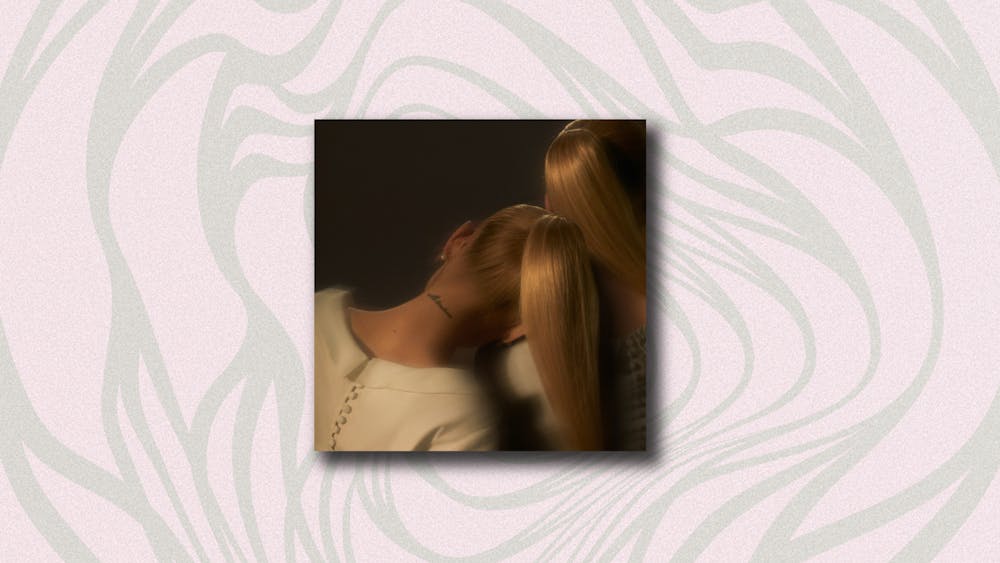Ever since I was a child, I just haven't been able to look away from Ariana Grande. Beauty and acting career aside, she has a musical magnetism that's always struck a chord with me. When I first found her, “Focus” had just come out—this song would later be called a flop by chart watchers, and Grande would ditch the entire concept in favor of what became the album Dangerous Woman. “Focus” would only be added to the end of the album’s Japanese Edition. In the years following Dangerous Woman's release, she would begin to lean deeper into honing every part of her craft, writing and co-writing hits for herself and other singers, while also shining as a producer and vocalist.
eternal sunshine, Grande's newest project, features a constellation of the singer’s questions, memories, anxieties, and hopes, as the project navigates both Grande’s divorce and her experiences with public scrutiny while entering a new relationship.
On the album’s first track “intro (end of the world),” Grande starts with a question: “How do you know if you’re in the right relationship?” Grande’s lyrics excel most when simple and honest, incredibly emotional and dominated by the questions and anxieties of being in a dying relationship. “I don’t know,” she sings, “Then I had this interaction I’ve been thinking about for like five weeks/ I wonder if he’s thinking ‘bout it too and smiling.” The melody pairs perfectly with the lyrics; it’s a premonition of what is to come. Grande’s album introductions have historically been strong, and eternal sunshine’s is perhaps one of the strongest we have seen.
eternal sunshine’s pop tracks mark a departure from Positions’ R&B sound and trap beats. The tracks “bye” and “don’t wanna break up again” juxtapose upbeat production with uncertain lyrics. On “don’t wanna break up again,” listeners watch a scene unfold between Grande and her ex-husband: “I fall asleep crying/ You turn up the TV/ You don’t want to hear me,” she narrates. Later, there is a demarcation made between the past and future of the relationship. “Courtney [Grande's best friend Courtney Chipolone] just pulled in the driveway,” she sings. Grande takes her things and, finally, leaves with her best friend. In many ways, the album reminds me of Kacey Musgraves’ star-crossed, a similar project about divorce. Both albums come off as a collage of diary entries, cataloging the struggles of entering full adulthood while watching a public marriage shatter before them. Musgraves’ “justified” employs a similar present tense narrative structure, as the singer confronts the realities of her divorce in real time.
But with time, Grande begins to heal. The twinkling production of “supernatural” offers a new glance into the world of eternal sunshine as Grande falls in love again. “No, I don’t even mind at all,” she admits about the sensation of love taking her over. Grande’s vocal layering takes the listener through a melodic twirl around the stars. The song is a glittery piece of hope after the relatively dark five tracks preceding it. Tracks like “imperfect for you,” which follow towards the end of the album, are similar descriptions of Grande’s new relationship, which she characterizes as built on mutual support and care.
Though thematically centered on the singer’s divorce, many songs on eternal sunshine are directed to Grande’s own fans and public. The four–song stretch from “true story” to “we can’t be friends (wait for your love)” addresses her audience in different ways. Some songs are flippant, with “yes, and?” asking “Why do you care so much whose dick I ride?”, while others reveal Grande’s discomfort and sadness with her precarious position in the public eye. “[W]e can’t be friends,” she realizes, “but I’d like to just pretend/ You cling to your papers and pens/ Wait until you like me again.”
The structure and pacing of albums is an underappreciated art, but eternal sunshine truly excels in this regard. It bobs and weaves between emotions in a way that doesn't feel disjointed, but, rather, profoundly human. (As Kacey Musgraves once sung, “Healing doesn't happen in a straight line”). It's remarkable the peaks and valleys Grande traverses in the 35 minute run time, and while the album does feel short, it doesn't feel rushed. The length feels thought through, a part of the aesthetic element that makes the project feel like a letter, a snapshot of a moment in time.
eternal sunshine is a postcard from Grande's memories—dreamy and multifaceted, at times submerged in melancholy—only to reemerge from the waters shimmering with newfound affection and life.

